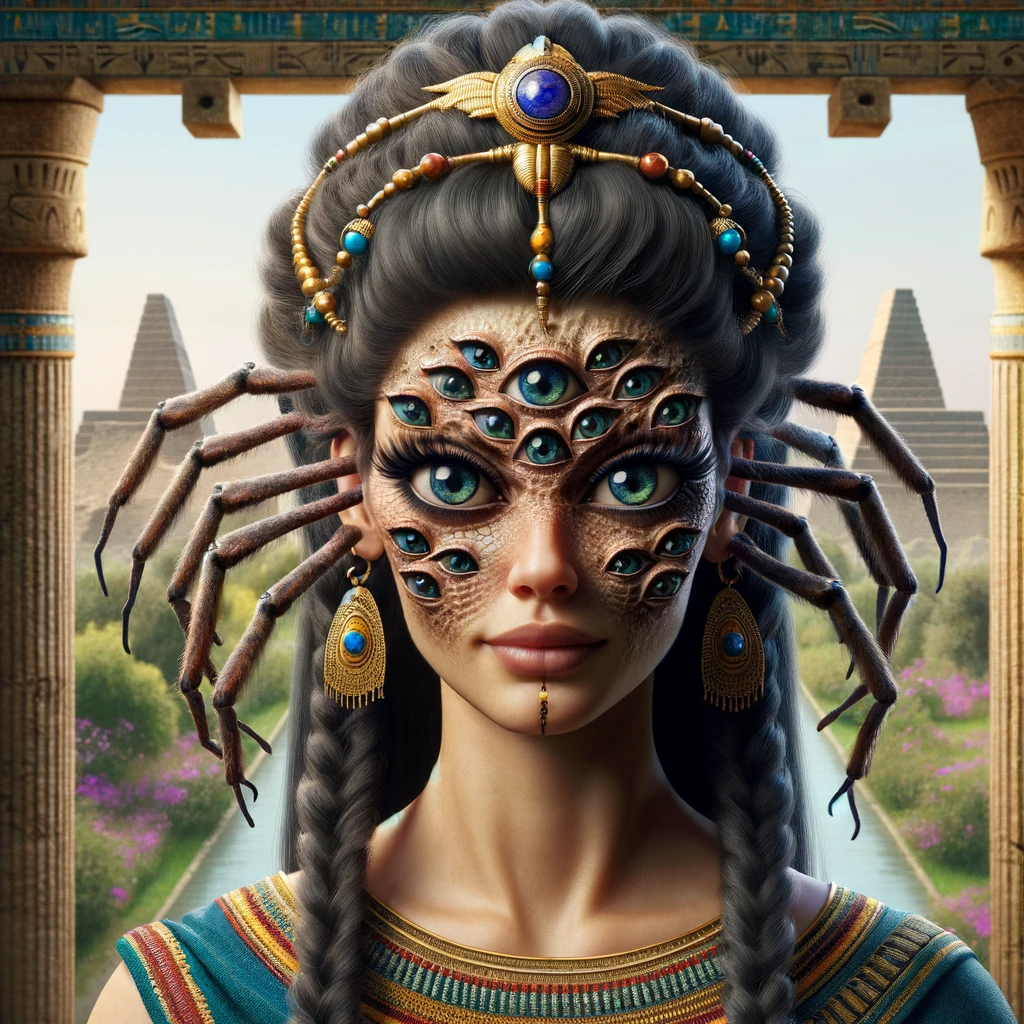
Uttu, in Sumerian mythology, is a lesser-known but fascinating deity associated with weaving and clothing. Her narrative offers a glimpse into the rich tapestry of Sumerian beliefs and their perception of the natural world.
Origin and Symbolism
Uttu is primarily known as the goddess of weaving and clothing, a role that reflects the importance of textile production in ancient Sumerian society. Textiles were not only essential for clothing but were also a significant part of the economy, used in trade and as offerings to the gods. Uttu’s association with spiders, creatures renowned for their skill in weaving intricate webs, underscores her connection with this craft.
Mythology and Tales
Uttu is featured in a few Sumerian myths, most notably in a tale involving the god Enki. According to the myth, Enki, known for his cunning and trickery, tries to seduce Uttu. She initially resists his advances, but eventually succumbs under false pretenses. However, upon realizing Enki’s deceit, Uttu is saved by the intervention of Enki’s mother, Ninhursag, who removes Enki’s seed from Uttu and plants it, giving birth to various plants.
This story is symbolic on several levels. It illustrates the typical trickster behavior of Enki and reflects the Sumerians’ views on the natural world’s interconnectedness, where gods and goddesses were directly involved in the creation and sustenance of life.
Worship and Cultural Significance
There is limited information on the specific worship practices related to Uttu. However, given her domain over weaving, it is likely that offerings to Uttu would include textiles or items related to the craft of weaving. Her worship would have been significant among those who worked in textile production, a crucial and highly regarded profession in Sumerian society.
Legacy and Modern Interpretation
Uttu’s story, like many Sumerian myths, offers valuable insights into the values, beliefs, and daily life of ancient Sumerians. Her association with a common, yet skilled creature like the spider highlights the Sumerians’ respect for and understanding of the natural world. In modern times, Uttu represents the intricate blend of mythology, nature, and human endeavor, illustrating how ancient cultures sought to explain and venerate the world around them.
In conclusion, Uttu may not be as widely recognized as some of her divine counterparts in Sumerian mythology, but her story and symbolism are deeply ingrained in the fabric of this ancient civilization. Her tale is a testament to the Sumerians’ reverence for the natural world and their understanding of its profound connection to human life.
